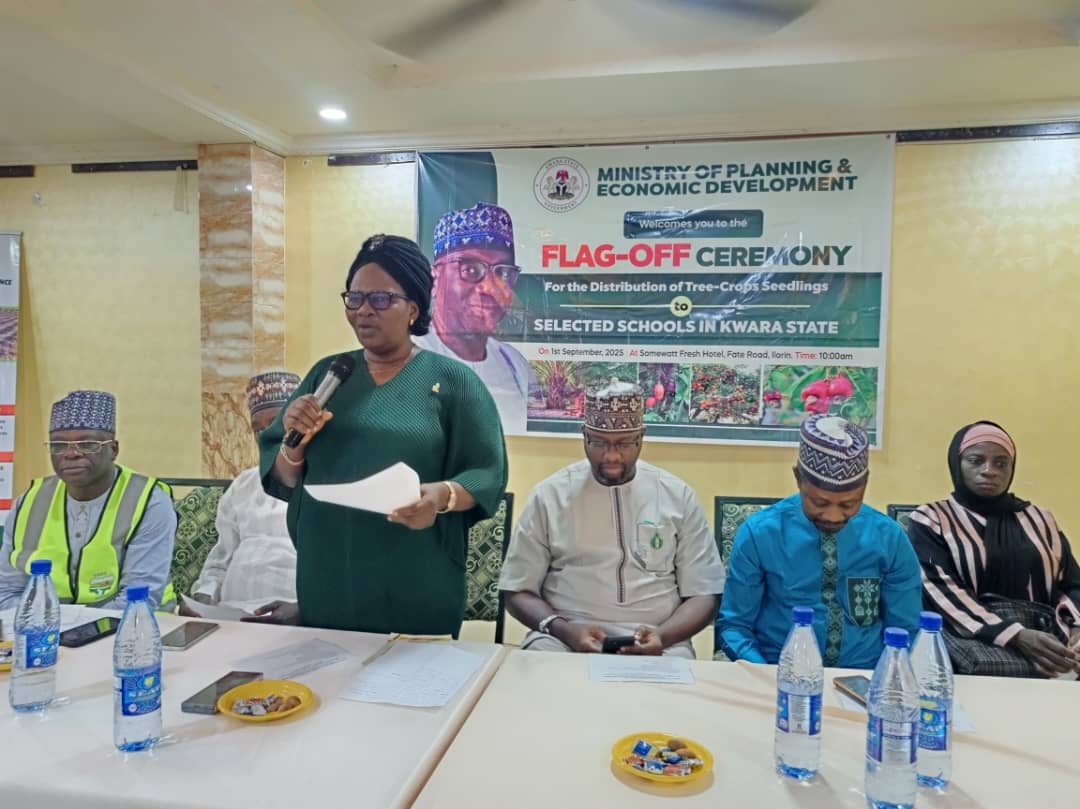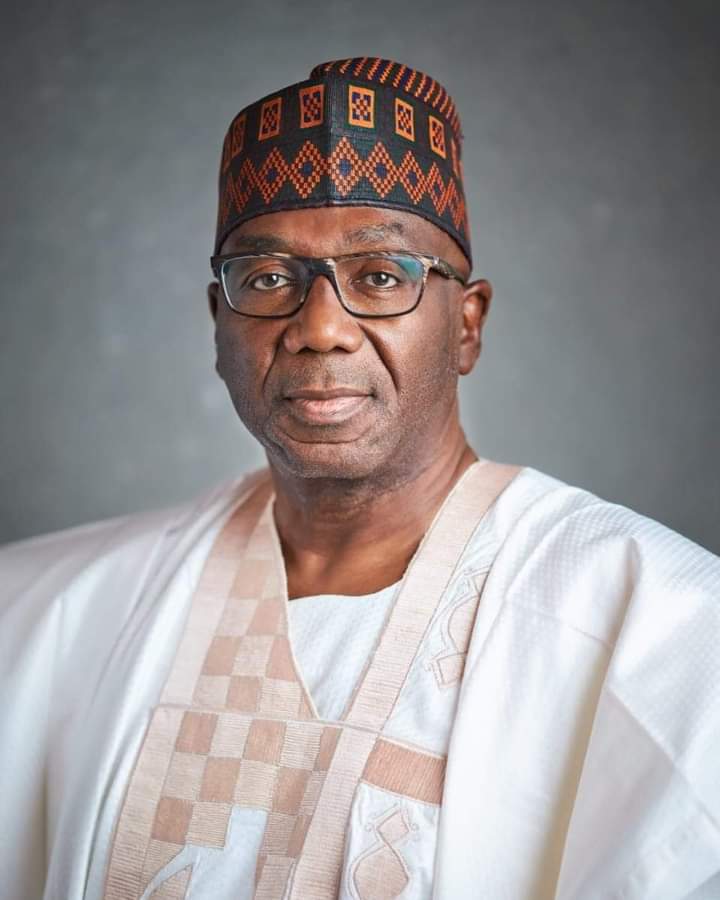Stakeholders at IFAD’s Country Strategic Opportunities Programme(COSOP) Design Regional Technical Consultations Workshop for 2024-2029, held on Monday in Asaba, Delta pix by NAN


Stakeholders at IFAD’s Country Strategic Opportunities Programme(COSOP) Design Regional Technical Consultations Workshop for 2024-2029, held on Monday in Asaba, Delta pix by NAN


President Bola Ahmed Tinubu’s food importation policy, originally designed as a temporary measure to curb spiralling food prices, is now facing mounting criticism for strangling agriculture in northern Nigeria. Analysts warn that the policy has created unintended “cobra effects,” harming local farmers and undermining the region’s economy.
In July 2024, the federal government launched the Accelerated Stabilisation and Advancement Plan (ASAP) to ease food inflation, which had surged to 40.87% by June that year. The plan suspended tariffs and duties on imports of staples such as rice, maize, sorghum, millet, and wheat. It also approved the direct importation of 250,000 metric tonnes each of wheat and maize. Though meant to last 150 days, from August to December 2024, the policy has remained in effect nearly a year later.
The continuation has reduced food prices in the short term but left northern farmers struggling with high input costs. Fertiliser now sells for up to ₦50,000 per bag, exceeding the price of paddy rice, making farming unprofitable. Critics argue that while farmers in Asia are being subsidised through imports, local producers are being pushed out of business.
The policy has also failed to provide real relief to millions of Nigerians. Although food is cheaper, widespread poverty and job losses mean many households cannot afford it. In the north, where agriculture serves as both a source of food and employment, the collapse of farming is rippling through rural and urban economies alike.
Observers note that the policy disrupts the agricultural frameworks of past administrations. Presidents Yar’Adua and Jonathan imposed tariffs to protect local farmers, while Buhari banned rice imports and subsidised fertiliser to below ₦10,000. These efforts boosted food production and stabilised inflation despite challenges like the COVID-19 pandemic and global supply chain shocks.
Tinubu’s reliance on food imports, critics warn, not only drains government revenue—estimated at ₦188.37 billion in waived duties—but also risks political fallout ahead of the 2027 elections. With northern farmers forming the backbone of rural voting blocs, the government’s policy could weaken its electoral base.
Calls are growing for an urgent review. Stakeholders argue that while corruption and hoarding remain concerns, abandoning structural support for agriculture in favour of imports is unsustainable. Without a policy shift, they caution, Nigeria risks deeper food insecurity and further economic distress in its most vulnerable regions.

Stephen Olufemi Oni, Ilorin
As part of the Food Systems Transformation Pathways (FSTP) agenda of the federal government, the Kwara state government in collaboration with the Agro-Climate Resilience in Semi-Acrid Landscapes (ACReSAL) has flagged off distribution of 14,180 economic tree seedlings to 255 schools across the 16 local government areas of the state.
Speaking at the event in Ilorin on Monday, the state Commissioner for Planning and Economic Development and Chairman of the State Steering Committee for FSTP, Chief (Dr.) Mrs. Mary Ronke Arinde, said the project would have both educational and economic impacts on schools.
Arinde also disclosed that the beneficiaries include 80 primary schools, 170 secondary schools, and five tertiary institutions in the state, adding that the schools would receive cocoa, cashew, oil palm, and orange tree seedlings.
According to her, the distribution, attended by local government chairmen, school principals, and representatives of Heads of schools, underscored the importance of the initiative to stakeholders in the education and agricultural sectors.
“These orchards will not only teach students about crops and their products but also serve as research plantations for tertiary institutions beyond academics, and we give the local governments chairman a chance to pick two schools of their choice to benefit from the initiative”, she stated.
Dr. Arinde added that, in the long term, the initiative could become a source of revenue for schools, enabling them to invest in other agricultural ventures such as animal husbandry and fisheries.
She urged supervising MDAs, the State Universal Basic Education Board (SUBEB), Teaching Service Commission, and Ministry of Tertiary Education to ensure proper monitoring and accountability through follow-up visits.
The commissioner commended Governor Abdulrahman Abdulrazaq for his commitment to food security, and praised the ACReSAL team, led by Alhaji Aregbe Shamsudeen, for ensuring delivery of the seedlings.
The Kwara State Director of Planning, Alhaji Kayode Alimi, stressed the role of school gardens in promoting agricultural education and serving as a practical learning tool for students.
According to Alhaji Kayode, the initiative includes the distribution of gardening tools to fast-track agricultural teaching and the provision of seedlings to students, enabling them to start their own gardens under regular supervision.
“This effort will not only create an eco-friendly environment but also inspire students to develop a passion for agriculture, food security, and self-empowerment”, he noted.
In his remarks, the Commissioner for Education and Human Capital Development in the state, Dr. Lawal Olalekan Olohungbebe, emphasised the need to preserve trees planted in schools, noting that they play an important role in protecting the learning environment.
He said that the initiative goes beyond aesthetics, adding that it is a way of safeguarding investments in education infrastructure.
Dr. Olohungbebe announced that the Ministry will set up a small committee to monitor the trees in schools and draw members from the Quality Assurance Bureau (QAB) and School Services, who would go round to inspect schools and their environment.
“On behalf of the Ministry of Education, I am promising that as soon as I leave this event, I’m not going back to the office. I’ll be putting a very small committee in place to monitor the trees”, he stated.
The event was flagged off with a detailed session on proper care and management of the seedlings to guarantee healthy growth and sustainability.
End.

Stephen Olufemi Oni, Ilorin
The Kwara State Government has embarked on agricultural transformation initiative aimed at boosting livestock production and rural development across the State.
Speaking with journalists in Ilorin on Thursday, the State Coordinator of the Special Agro Industrial Processing Zone (SAPZ), Engineer Dr. Busari Isiaka, said the SAPZ project is funded through a $57.2 million partnership between the state government and the Islamic Development Bank (IsDB), Saudi Arabia, to establish a robust infrastructure for investors and local farmers in beef and milk processing.
Engineer Isiaka, who emphasised the significance of the project, noted that it is the first time a sitting Governor is serving as the Chairman of a steering committee for such an undertaking.
“For you to understand the importance of this project, it is a five-year initiative with joint funding from the state government and IsDB. Other states of the federation receive their support from the African Development Bank. Kwara is pioneering this collaboration with the Islamic Development Bank”, he said.
He also said that Kwara State’s early commitment to the project was evident in its swift payment of counterpart funds, making it the first State to fulfil its financial obligations, adding that the prompt action had allowed the State to progress significantly.
“The initiative is primarily focused on improving agricultural infrastructure, particularly in the livestock sector. With a core objective of enhancing livelihoods of rural communities. The SAPZ project will give special attention to youth and women while promoting food and nutritional security. It is designed to provide sustainable solutions for livestock farmers by ensuring they have access to modern processing facilities,” he added.
Engineer Isiaka, who said that the project is being implemented in five local government areas: Ifelodun, Kaiama, Baruten, Asa, and Moro, added that it will feature Agricultural Transformation Centres, “where local farmers can process raw materials such as milk before they are transported to an agro-industrial hub in Malete, Moro local government area, for further processing into dairy products like yogurt and cheese.
“The beef value chain will also be integrated into the project, with necessary facilities to support meat processing.
“To ensure a smooth execution, we conducted extensive environmental assessments and community consultations. We have profiled over 5,000 beneficiaries, ensuring that the infrastructure we are providing meets their needs, including access to potable water”, he said.
He said the project, currently in its design phase, is expected to transition into full infrastructure development later this year.
“By God’s grace, this year we will commence the construction of these facilities. The design phase will be completed in three months, after which contractors will take over”, he said.
The SAPZ State Coordinator said that the state government has also engaged consultants to attract both local and international investors to the project.
“The goal of the Special Agro-Processing Zone (SAPZ) is to reduce agricultural wastage and enhance value addition. Kwara is positioning itself as a leader in livestock processing, and this initiative will ensure that our farmers benefit immensely”, he added.


FG, states urged to harness flooding for ranching, others with technology – Agbaje


Breaking: EFCC seals Borno House of Assembly, as Hon members take to their heels


Nigeria Security Operatives Stage Manhunt For Homosexual Perpetrator


How 21-year-old Girl fled community over accusation of lesbianism


Yobe Gov Moves Against Deputy

7 signs she has friend zoned you
Online job placement company headhunts women


Borno Dep Gov Abducts Another Church Leader